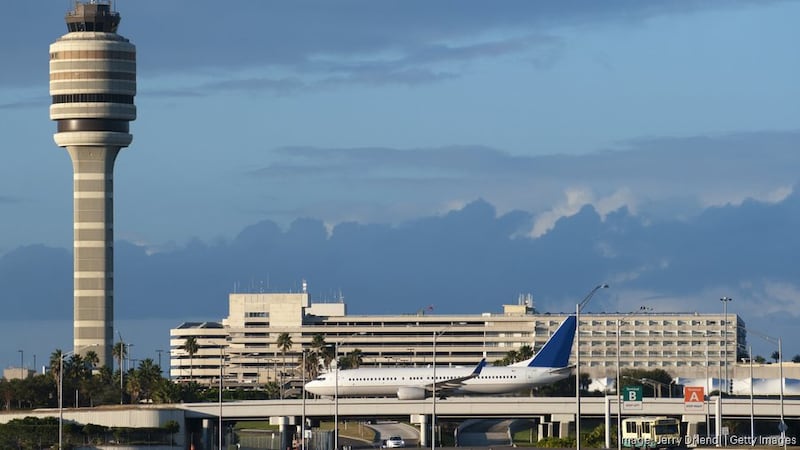BOSTON — A federal appeals court in Boston ruled on Friday that the Trump administration cannot withhold citizenship from children born to people in the country illegally or temporarily, adding to the mounting legal setbacks for the president's birthright order.
A three-judge panel of the 1st U.S. Circuit Court of Appeals became the fifth federal court since June to either issue or uphold orders blocking the president's birthright order. The court concluded that the plaintiffs are likely to succeed on their claims that the children described in the order are entitled to birthright citizenship under the Citizenship Clause of the 14th Amendment.
The panel upheld lower courts' preliminary injunctions, which blocked the birthright order while lawsuits challenging it moved ahead. The order, signed the day the president took office in January, would halt automatic citizenship for babies born to people in the U.S. illegally or temporarily.
“The ‘lessons of history’ thus give us every reason to be wary of now blessing this most recent effort to break with our established tradition of recognizing birthright citizenship and to make citizenship depend on the actions of one’s parents rather than — in all but the rarest of circumstances — the simple fact of being born in the United States,” the court wrote.
California Attorney General Rob Bonta, whose state was one of nearly 20 that were part of the lawsuit challenging the order, welcomed the ruling.
“The First Circuit reaffirmed what we already knew to be true: The President’s attack on birthright citizenship flagrantly defies the Fourteenth Amendment of the U.S. Constitution and a nationwide injunction is the only reasonable way to protect against its catastrophic implications,” Bonta said in a statement. “We are glad that the courts have continued to protect Americans’ fundamental rights.”
A second appeals court ruling on Friday also found in favor of several organizations that challenged the birthright citizenship order. The plaintiffs, including New Hampshire Indonesian Community Support and League of United Latin American Citizens, were represented by the American Civil Liberties Union.
“The federal appeals court today reinforced that this executive order is a flagrant violation of the U.S. Constitution — and we agree,” said SangYeob Kim, senior staff attorney at the ACLU of New Hampshire. “Our Constitution is clear: no politician can decide who among those born in this country is worthy of citizenship.”
In September, the Trump administration asked the Supreme Court to uphold its birthright citizenship order. The appeal sets in motion a process at the high court that could lead to a definitive ruling from the justices by early summer on whether the citizenship restrictions are constitutional.
“The court is misinterpreting the 14th Amendment. We look forward to being vindicated by the Supreme Court,” White House spokesperson Abigail Jackson said in a statement.
In July, U.S. District Judge Leo Sorokin in Boston issued the third court ruling blocking the birthright order nationwide after a key Supreme Court decision in June. Less than two weeks later, a federal judge in Maryland also issued a nationwide preliminary injunction against the order. The issue is expected to move quickly back to the nation's highest court.
The justices ruled in June that lower courts generally can't issue nationwide injunctions, but they didn't rule out other court orders that could have nationwide effects, including in class-action lawsuits and those brought by states.
A federal judge in New Hampshire later issued a ruling prohibiting Trump's executive order from taking effect nationwide in a new class-action suit, and a San Francisco-based appeals court affirmed a different lower court's nationwide injunction in a lawsuit that included state plaintiffs.
At the heart of the lawsuits challenging the birthright order is the 14th Amendment to the Constitution, which includes a citizenship clause that says all people born or naturalized in the United States, and subject to U.S. jurisdiction, are citizens.
Plaintiffs in the Boston case — one of the cases the 1st Circuit considered — told Sorokin that the principle of birthright citizenship is “enshrined in the Constitution,” and that Trump does not have the authority to issue the order, which they called a “flagrantly unlawful attempt to strip hundreds of thousands of American-born children of their citizenship based on their parentage.”
Justice Department attorneys argued the phrase “subject to United States jurisdiction” in the amendment means that citizenship isn’t automatically conferred to children based on their birth location alone.
In a landmark birthright citizenship case, the Supreme Court in 1898 found a child born in San Francisco to Chinese parents was a citizen by virtue of his birth on American soil.
___
Copyright 2025 The Associated Press. All rights reserved. This material may not be published, broadcast, rewritten or redistributed without permission.











